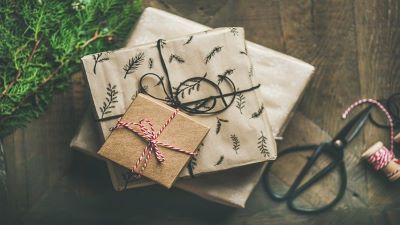
By Angelos Gentikis, Sustainability Expert
It is this time of the year again. Christmas is knocking on our doors. Shops are dressed in colorful lights and are ready to offer their products to customers. Whether it is meant for present or for personal use, each product comes with its own beautiful packaging. Packaging, in particular, can be so important for a product that consumers might make their purchases depending on it. But if you think about it, packaging is like it is destined for disposal.
Yes, packaging is not the only product that has such a short lifetime, especially in Christmas time. Plastic dishes, cutlery and cups are used to serve food and drinks respectively, in most of Christmas parties. Aluminum cans and glass bottles come to join all the above materials, not only in Christmas parties but in trash as well. Because, whether it is for the consumers, or for the materials themselves, a great amount of recyclable materials end up in landfills. This is concerning not only for Christmas time but for the whole year in general. However, during the festive period an extra 30% of rubbish is produced and discarded.
Just imagine that the production of the 1 kg of wrapping paper is responsible for the emission of more than 3kg of CO2 in the atmosphere. On the other hand, 246kg of CO2 emissions can be saved if a tonne of glass was recycled. On top of that, the energy saved for every aluminum can that is recycled, is enough to power a set of Christmas tree lights for two hours. Recycling our waste is one way to experience the magic of Christmas and at the same time protect the environment.
The other way is by replacing fossil fuel-based materials, like the ones mentioned above, with sustainable alternatives. Such alternatives have already made their appearance in the market; however, with reduced performances in most of the cases. Therefore, it is imperative that these alternatives are based on sustainable raw materials with performances that exceed these of conventional products.
IRES is proud to be among the partners who work on the development of such materials in the H2020 funded projects. Packaging, consumers’ goods and even the energy and transport sector are fields in which these innovative materials are targeted.
IRES’s role in the projects is to perform Life Cycle Assessment (LCA) and Costing (LCC) analyses, evaluating and estimating the sustainable performance of the emerged technologies and resultant products. There internationally standardized methodologies are broadly used to quantify the environmental and cost impacts each product has, from the moment raw materials are extracted until the end of the product’s functional lifetime.
So, let’s make this year the first “Sustainable” Christmas ever!
